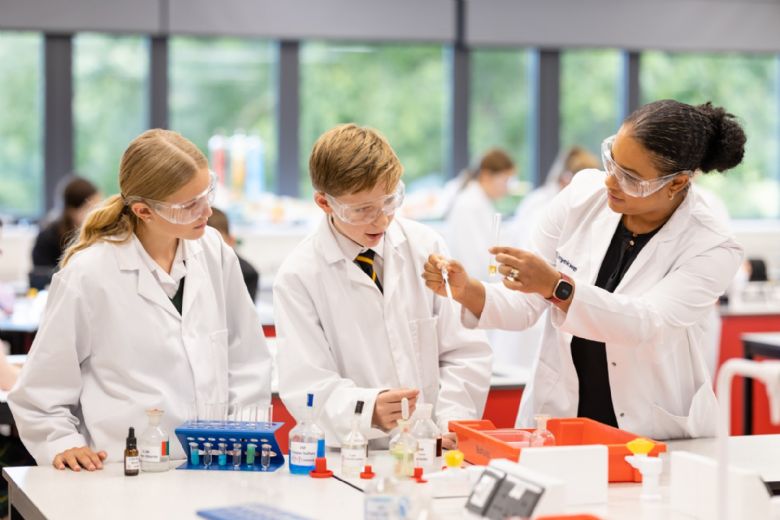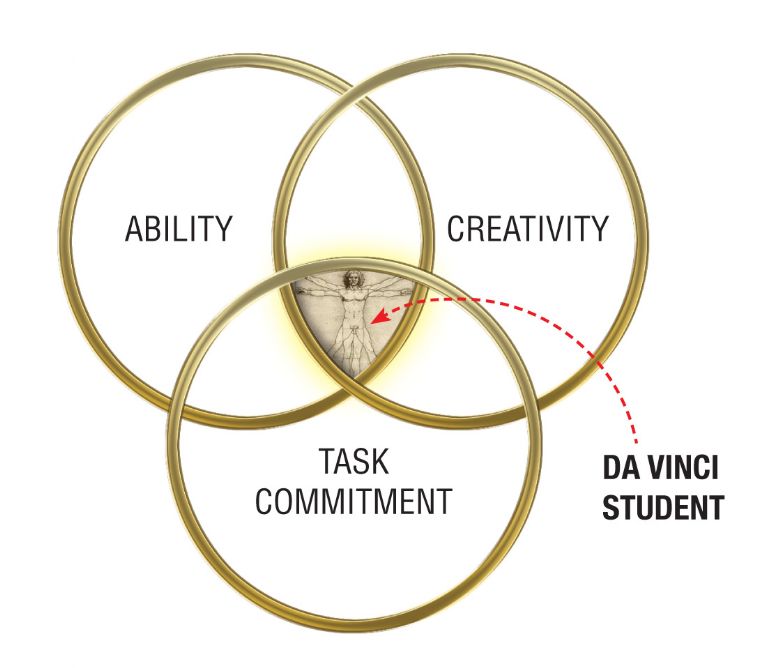Academic
Academic success and the pursuit of excellence are key features of a Princethorpe education. We offer a broad range of subjects and a stimulating and well-resourced curriculum. We aim to foster a love of learning. Whilst Princethorpe is not an ‘academic hot house’, our passionate and enthusiastic teachers challenge and motivate our pupils to have the highest expectations.
The academic performance of the school continues to go from strength to strength. In public examinations our pupils excel. To see our latest exam results please click here.
When looking at the academic “value-added” we give to our pupils, these results compare with any school in the country – bright students achieve outstanding results and children who find their academic studies more challenging achieve results between a half and full grade better than could be expected.
We are of course delighted by these academic achievements, but we are equally proud of the qualities our students show as they leave the school to continue their education: kindness, respect and a strong sense of right and wrong.
The Curriculum
At Princethorpe College the curriculum is designed to be knowledge-rich and broad, providing pupils with a well-rounded education from Year 7. As pupils mature, we allow them the opportunity to choose where to specialise, with Options processes for those entering Year 9 and Year 10. For some pupils with specific learning needs, we offer a slightly adjusted curriculum in discussion with the Learning Support department.
Lessons are taught in small classes to allow staff to cater effectively for the needs of each student to both support and challenge them in their learning. All pupils are expected to have a laptop in school as we blend traditional and digital media in teaching, benefitting from the best of both approaches.
We are continually reviewing our curriculum to ensure that it serves our pupil body effectively, preparing them for their individual futures.
For more in depth curriculum information please click here.
years 7, 8 and 9
 Pupils in Years 7 to 9 follow a traditional programme, which draws on the best of and goes beyond the National Curriculum.
Pupils in Years 7 to 9 follow a traditional programme, which draws on the best of and goes beyond the National Curriculum.
The subjects studied are English, Mathematics, Science, Religious Studies, Latin, History, Geography, Computer Science and Technology, Art, Modern Languages, Music, Drama, PE and Games. Personal, Social and Health Education is delivered in dedicated lessons and through Tutor times.
In Year 8 pupils continue to study Spanish, with French also being introduced. Pupils will either continue their study of Latin or follow an English Development course designed to improve their literacy skills.
For Year 9 pupils are given further choices: they continue to study one main language (French or Spanish) and choose two optional subjects from the following list: Art, Computer Science, Drama, French, Latin and Music. This options system allows pupils to play to their strengths and gives more time to their areas of interest. With the exception of languages, it is not a requirement to take an optional subject in Year 9 in order to take it at GCSE.
years 10 and 11
In Years 10 and 11 the curriculum needs to be broad and balanced, in order to keep as many doors open for subsequent choices to be made at A-level and then for degrees and careers.
Core GCSE subjects:
-
English Language
-
English Literature
-
Mathematics (and Further Mathematics for some)
-
Science - Pupils study either Double Award Science or the Triple Science option which leads to three separate Science qualifications for Biology, Chemistry and Physics.
-
Religious Studies
Pupils then choose three further options from the following option subjects:
- Art
- Art and Textiles
- Business Studies
- Computer Science
- Dance BTEC
- Design and Technology: Resistant Materials
- Design and Technology:
Electronic systems, programmable components and mechanical devices - Drama
- Food Preparation and Nutrition
- French
- Geography
- History
- Latin
- Music
- Physical Education
- Psychology
- Spanish
- Sport (BTEC)
(In the interests of balance, only one Design and Technology subject may be chosen).
Learning Support can be available in place of one GCSE option if appropriate.
In addition all pupils continue with non-examined Games and Personal, Social and Health Education (PSHE) through the REAL Programme.
LOWER AND UPPER SIXTH
 Most Sixth Form students will take three subjects through to A-level as well as an Extended Curriculum Option. (Students may take four subjects at A-level if it is felt to be in their best interests instead of an option from the Extended Curriculum choices.
Most Sixth Form students will take three subjects through to A-level as well as an Extended Curriculum Option. (Students may take four subjects at A-level if it is felt to be in their best interests instead of an option from the Extended Curriculum choices.
Help is given in choosing A-level subjects wisely, taking into account strengths and preferences, sensible subject combinations and future degree choices and career choices.
Group sizes in the Sixth Form enable staff to give pupils a great deal of individual attention.
A-level Option Choices:
- Art
- Art and Textiles
- Biology
- Business Studies
- Business Studies (BTEC)
- Chemistry
- Computer Science
- Core Mathematics
- Design and Technology
- Drama and Theatre Studies
- Economics
- English Language and Literature
- English Literature
- French
- Geography
- History
- Latin
- Law
- Mathematics
- Further Mathematics
- Music
- Music Performance (BTEC)
- Photography
- Physical Education
- Sport (BTEC)
- Physics
- Politics
- Psychology
- Religious Studies (Philosophy and Ethics)
- Sociology
- Spanish
provision for exceptionally able pupils
The da Vinci Programme
 At Princethorpe College we aspire to the Renaissance ideal that all people should endeavour to develop their capacities as fully as possible, to enjoy broad interests, profound knowledge and wide ranging accomplishments. Whilst we may be born with certain predispositions, we are completely able to change and develop skills as much as we wish to and when a student demonstrates three interlocking traits - ability, task commitment and creativity - they will achieve high level performance.
At Princethorpe College we aspire to the Renaissance ideal that all people should endeavour to develop their capacities as fully as possible, to enjoy broad interests, profound knowledge and wide ranging accomplishments. Whilst we may be born with certain predispositions, we are completely able to change and develop skills as much as we wish to and when a student demonstrates three interlocking traits - ability, task commitment and creativity - they will achieve high level performance.
at da Vinci level are celebrated and offered further opportunities for stretch and challenge (such as invitations to guest lectures, Level 2 and 3 Project Qualifications). The top 10% of pupils with the highest number of da Vinci merits in each year group are awarded da Vinci badges and are invited to participate in the annual da Vinci Badge winners' trip. The one student who achieves the most da Vinci merits in an academic year and who most embodies the Renaissance ideal is awarded the da Vinci Shield at the College’s annual Prize Giving.
Project Qualifications
